Text
Notes from a first time DM
Hi! I’ve been a DM for a year now, and here’s some things that I learned during the whole process!
When you’ve been appointed with this status (Divine Master, Dungeon Master, ect.) it’s important to remember that the people you’re DMing for want an adventure. It’s your job as the DM to determine if the people you’re with want a serious adventure, or a silly adventure.
If it’s a serious one, there’s really no harm in putting in a few silly points, and vice versa with a silly campaign. What’s important is the flow of the campaign, and all the connecting dots.
As a published writer with a degree in this stuff, it’s also important to note that just because you yourself don’t have a writing degree, or have been published or something, doesn’t mean that you don’t have the chops to be a DM. You need to remember that D&D is suppose to be fun—if you’re not having fun, then something’s wrong. Evaluate what’s wrong, albeit party members, story, or just overall gameplay and adjust when necessary.
If you’re having problems with party members, take a moment and assess the situation. Are the players not getting how to play? Are the players being jerks to everyone else? Are the players not wanting to cooperate with each other? There are a lot of things to take into consideration.
If the players aren’t getting how to play (first time players, new edition, ect.) take some time to go over the game mechanics with them. I had two first-time players in my large group and had to sit down with them and explain how things went. The rest of the group also helped in them understanding how to make checks, role play, and just general game play.
However, once they knew how to play (with some questions here and there), they weren’t active in the game. At first, I thought this was a problem on my end. Am I not doing something right? Why aren’t they more active in playing the game? I asked a DM group on facebook this question because I genuinely believed it was my fault that something was wrong—like I wasn’t adhering to their needs. Turns out, (after a few mean comments too) that it was more ‘some people play D&D differently’. I realized that just because they weren’t role playing like everyone else didn’t mean that they were a problem—it meant that they were doing what was most comfortable to them. Essentially, as Matt Coville put it, they were ‘audeince members’—meaning that they wanted to play, but they wanted to watch more than anything. I hadn’t experienced people like that before, and that’s okay!
If you have a player that’s being a jerk to everyone (either in game ‘because that’s what my character would do’, or in real life), take them aside. I had to talk to a player of mine because, since he’d played D&D in the past and knew how to do everything, he thought that he needed to dictate what others did. Just because you’ve played before doesn’t mean that you can have wide-access to the whole party/picture. If your player’s character is being a jerk (and they give you that ‘it’s my character excuse’) again, take them aside. Regardless of whether these problems are happening in-game or not, it doesn’t give that person a right to make the game miserable for everyone else. Weigh the pros and cons. Don’t be afraid to tell them to leave. If they can’t behave, then don’t tolerate it. I have zero fucks to give if you’re doing this to others.
Are your players not working well together? This one’s harder—I’ve only had this happen a few times, and generally it’s mostly just because some people want other things, and that they don’t work well with others. It’s really dependent on the people—when I brought my group together, I felt that they would get along pretty well—there were some bumps along the way, people had to learn to tolerate each other, but otherwise the game’s been going alright. In this situation, it really depends on the people, and what’s happening in game. I made several situations early on that depended on everyone working together to get through and progress the story. They HAD to work together. The end goal was fairly easy to get to. The situation called for everyone to do X and then they’d get to Y. Sometimes, people need to know what they need to do in order to do it right.
But is it the story that’s being a problem? I really like the fact that Wizards of the Coast makes pre-set campaigns. But homebrew’s a bit different. And a story can really make or break a homebrew. I’m no expert, but really polishing a story is everything. Even if the idea starts off as a turd—polish that thing until it shines. I’ll have story ideas stored away for years, waiting until something makes sense or is just better than when it originated in my head. The one thing that I’ve found that really sets stories apart is the pacing, and for D&D, I’ve found that a steady pace is fine. But with what I’ve done, I’ve given my players certain story markers—points of emphasis that make them want to get to the next one. Oh, you guys are in the Witch’s Burn? Figure out what happened. Oh, you’ve figured out what’s happened? Good for you! Now go where you need to go, get there, and something else’ll happen!
This isn’t always the way—sometimes my pacing really depends on how fast my players get through things. But pacing is definitely important. You can’t have every session be amazing—that’s too demanding on you (DM), and too high of expectations for the players to have of you. Slow sessions are required for them to want to get to the big events.
If you’ve found that your story is the problem, ask your players what they think could be better, write down what you think could be improved, and work from there. It’s okay to take a week (or whatever time needed) to get your story straight and take a session or two off.
It’s also essential to read-up or at least respond quickly with improv. Sometimes (most of the fucking time) my players will do something I didn’t anticipate, and I’ll have to act out a scene for them. This isn’t always bad—improv is what got my players started on their first main quest.
When we first started, everything was standard fair-- they (for the most part) met in a small town and rallied together to fight off some bandits. Once they had united themselves, the real adventure started. I created a somewhat long-term NPC that helped me determine what kind of characters my players had chosen to be, and got them going on some standard stuff. The NPC is my sweet birb son aarakocra cleric who was one of those guys who’s optimistic about everything and is genuinely very nice. Once they interacted with Crae, I got to understanding my player’s characters more and devised situations around their characters, whether it was something to their backstory or just to see how they would respond. What I didn’t expect was that they took a simple story hook and decided to run with it.
They had come to a simple fisherman’s village, saw a small sea serpent thrashing about and went into action. When one of them went into the water they saw a silver casket and decided to push the heavy thing to shore, killed the serpent and determined that the casket was the thing that had made the serpent go nuts. THEN. Two of them decided ‘oh, let me put my blood on this thing.’ like idiots. (especially considering one of them was a VAMPIRE). Nothing happened. The next day they left and as they were about an hour away they heard a loud explosion, looked back, saw a big plume of smoke that raced across the sky, took the shape of a corpse’s face (very Mummy-esq) and screamed at them as it headed elsewhere. They decided, ‘oh, time to chase after smoke-face’.
Now, I should’ve expected that they chase after the smoke-face, but for whatever reason I didn’t. It then became a game of, create backstory from improv. Which actually worked out for the better. (I may write up a post later explaining all of their shenanigans).
In this case, smoke-face was the villain (haha maybe), along with several other people that worked for him, and their main quest became to rescue a goddess that had gone missing.
All of this is homebrew. The only thing that I used as influence was the story hook of the ‘ornate silver casket’ that they dredged up out of the ocean. This came from a pdf called ‘50 rumors and hooks’ specifically for D&D use, everything else concerning the major story came from myself. Smaller bits, like a cape that had a treasure map stitched into the inside, or the funny ‘sword of emotions’ are things that I’ve used in passing. Use those little hooks and things that you find online, and make them your own.
Now, I take very brief notes in my notebook when writing out certain things (I prefer to write them because I’ll remember them easier than if I type it out). For major and minor cities, I’ll write out the name of the place, important places like inns, brothels, and such, the names of the place, who runs the place, their name, sex and race, and how much the place costs. I’ll write out other shops as well, and typically make a short list of the items and such that they can buy (or use one of those nifty random generators). The townhall, the law-master, and if there’s any jobs in the area, how much gold can be made, and write out either what the jobs needs, and set a DC if it needs one. If the job involves an encounter, I’ll write out briefly what it is, weapons, spells, creature/enemy AC, and any kind of special actions that they can do.

From there I’ll briefly write out plot points, and as you’ll see, most of what I do is based on improv. By this time I’ve memorized the characters that I’m playing and go into actor-mode and can make decisions based on their personalities, the situation, and whatever else. I’ve also memorized the setting and story so there’s not much that I have to look up. Typically, everything I need is in short-hand.
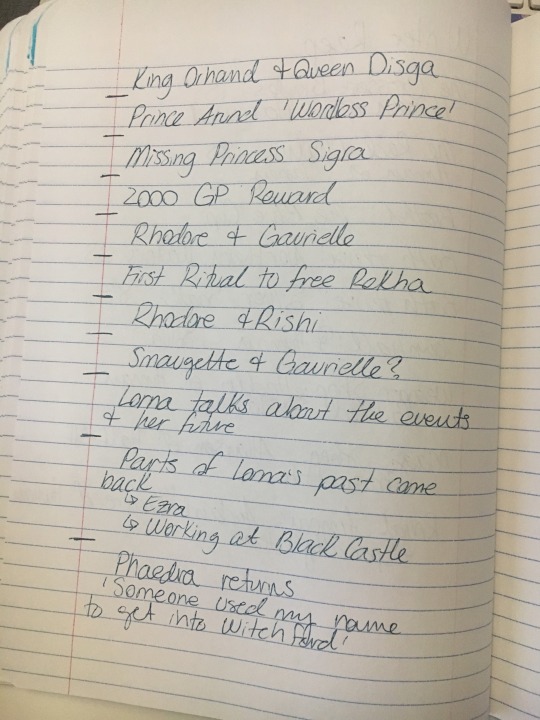
However, for major plot points, I’ll write things out (hopefully chronologically, if not I’ll put numbers by what needs to happen first and go from 1-10). Then, if a situation requires certain dialogue (like, you’ve got something really FUCKING COOL, that really noice line that just makes a situation), I’ll write it down. Now, for these major points, a lot of them essentially act as cut-scenes unless otherwise stated. I imagine that some people and players probably don’t like this, but that’s how I run my game, and so far my players like it.
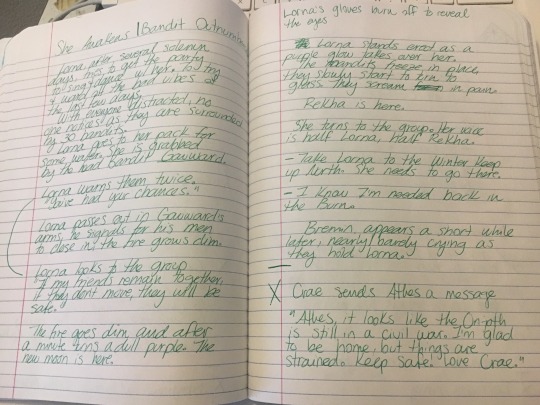
What I also do, because I’m a dramatic bitch, is that I use music in my games. I like Sword Coast Soundscapes for their background ambience, and Peter Gundry for a lot of basic music needs. I have several different playlists I use, and they all run between an hour and three hours. I have music laid out before hand. Now, if it’s a major plot point, either for the story or a single player, I’ll look at my itunes and figure out what songs would be appropriate for the situation and have them laying in waiting. This has helped me enhance the feeling of certain plot point to the point where it just feels nice to have something playing in the background. It also feels more important if I use certain music for scenes and gives my players the notion that what’s happening is important.
For encounters, as I stated earlier, I have basic outlines. If it’s an encounter that’s simple like some bandits, I don’t go into too much detail—write out their HP, AC, weapons, stats, spells, and anything else if necessary, like treasure (if applicable). If it’s a big boss monster, I’ll add other things that the creature/enemy can do, (like legendary actions, or lair actions), and generally their HP will be pretty up there. (the Furnace Elk actually was at 350 HP in the end).


I also have a smaller notebook that has basics in, like the schools of magic and what they do. Just to remind me of either game rules, basics, or my own homebrew that I sometimes forget.
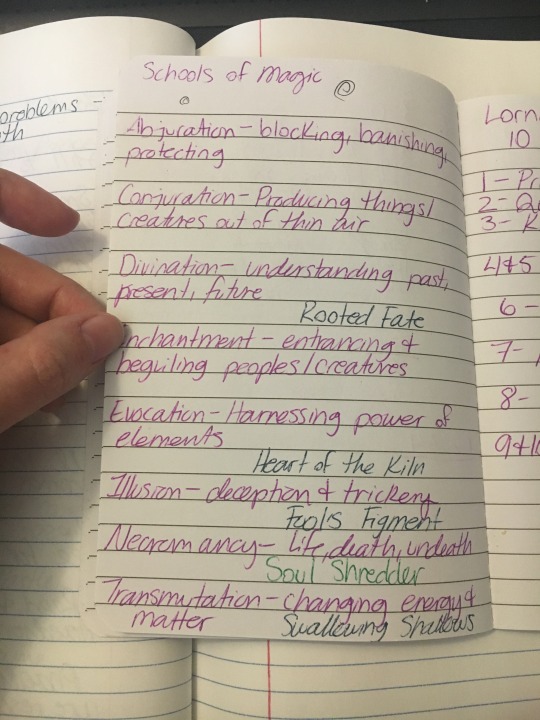
In terms of your homebrew, there’s a lot to consider: What’s the political status? Are we at war? Peace? Why are we in war/peace? Who’s the enemy/ally? Who’s the royal family? Does your country have a royal family? What does your country value most? What are the most common races? What does the land look like? Is it Medieval Europe-esq, or it is more like the early Middle East? Is there a pantheon of gods and goddesses? Are they original or from the book? What’s the military look like? What’s the relationship with the rest of the world (if any)? Is there discrimination? Is the country mostly poor? Certain landmarks?
What I do, is I write out a brief summary of what my continent has been through recently, and then go from there. I describe the different kingdoms, what they value (knowledge, power, ect.), what the royal family is like, their brief history, royal crests, military, most common races, and any big points. For instance, the kingdom of Thelinde was tried for war crimes against another continent because they wanted the resources and did anything they could to get them. When one of their allies found out, that kingdom backed out, essentially costing Thelinde the war. Connect kingdoms and see if their actions either for or against make anything significant happen. Embargoes, treaties, trade-agreements—does any of this happen? Currently or in the past?

Now, I use a lot of resources. Like that pdf I mentioned earlier, I have files printed for political situations, how short-term vs. long-term madness works, lingering injury sheets, road encounter generator, city activities, trinket generators, tarot cheat-sheet, language scripts—fuck I even made a calendar.
Oh, but what about the players? Funny you should ask! Within the first month of playing the game, while everyone was figuring things out, I asked everyone for a few things: tell me 2 truths, 2 lies, and 1 half-truth/lie about your character. These’ll be used later in game whenever they get to certain situations. I.E. they encounter family, friends, enemies, or just ordinary townsfolk who happen to know who that person is. It’s fun to create a certain kind of discord and if person A is referred to in a not nice way, the rest of the characters have to make a judgement about person A—is that the truth? Is it a lie? Why would that peasant say that? Should we ask? It ends up making certain people either seem better or worse than everyone’s expectations and realities.
I also require basic backstories. Some of my players went WELL over what they needed to do, and it put me in an unusual spot—they said this about their backstory, and that this happens, and so the future looks like this.
I really don’t like that, your players shouldn’t give you anything about how their want future events to be—but at the same time, I can change it up a bit—still give them what they want, but in a way they didn’t expect. That can’t be said for all situations, but for a few I’ve made it work. But again, no future stuff. They can have hopes and aspirations—but don’t give me anything that would already make me think of an end for your character. That’s no fun if you already know what’s up.
And the lies/truths is something that helps create events for the characters. One character was discharged from the military for a severe injury, but she doesn’t remember a thing. The only thing she really knows is that her entire platoon was killed except for her, their captain. So if she returns to her hometown, or the military hospital she was in, people will probably not be very kind to her, knowing their she may be the one responsible for their child’s death.
Players not knowing what’s going to happen is wonderful. It puts, as a friend of mine would say ‘The fear of God’ in their bones. Either this thing that’s happening is really good, really bad, or really cool. I’ll ask everyone but a certain player to leave the room to do a one-on-one scene (with music generally), and draw out an event that I’ve had planned. These usually don’t last longer than 20 minutes, and probably shouldn’t go on any longer than that.
For instance, the same character who was discharged from the military doesn’t realize that the arm she can no longer feel, will eventually try and strangle her in her sleep, and that she doesn’t belong in the world she’s in. And if she can survive her own body trying to kill her, then maybe she can figure out what these clues she’s been given are.
NPC’s? They can be really fun, and can even be the center point to a whole quest! Crae, who I mentioned earlier, became a favorite of my players because he was such a good good boy. And when he left everyone was very sad because he’d become so memorable, and because he’d saved their skins a few times too. Also he had an interesting backstory that really, only one of my players found out. Things are still happening to him across the world, and my players may just have to get on a boat and help him—otherwise a civil war may just find him.
But for now, take the character Lorna. She’s a courtesan, who is drop-dead gorgeous, a wonderful singer and dancer, and has a way with sex. She’s fully in control of herself and became pivotal to the main quest. She was the one my players needed to rescue—they just didn’t know it! And frankly, neither did she. All they knew was that they picked up a traveller and then things happened, and my players realized the gravity of the situation: keep Lorna safe or something terrible will happen. Get the help of the trickster god Bremin, get her to Point A, have an old flame/enemy show up, kidnap her, rescue her from said douche, get her to Point B, tell her a few things that she doesn’t know/realize, and then get her to Point C. In the end, Lorna’s become more reserved, which is something I didn’t expect, and she may not like where her new life will lead. But keeping her safe, and keeping her from destroying people is what my players agreed to do.
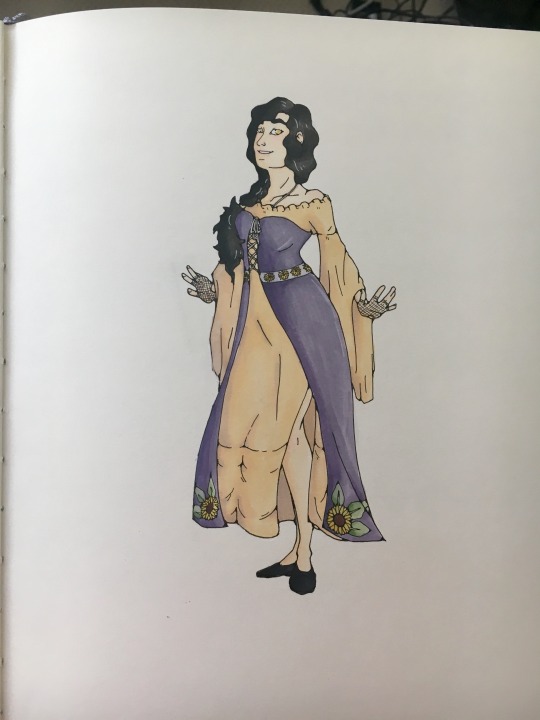
I am by no means an expert on D&D—the first experience I had with it was with a small group of friends and we only played around four games. After that there was a big dry spell, during that time I became very depressed, even suicidal. Everything around me was bad, and the only thing that really kept me going was my dog. Suddenly, I found a podcast called ‘The Adventure Zone,’ and started to listen. Almost instantly, my mood became better, I talked more often to friends, and made new ones. Then I found ‘Critical Role’, and listened to them, and love them!
What’s really important, and maybe what my point here is, is that little things like playing a game can be a big game changer—last year a friend of mine said that I’d be a really good DM, and mostly because he had already been a DM and just wanted to play. I gathered a group, and created a one-shot (which actually had to go on for two sessions), and after that, I created and played out my first campaign. D&D really helped me get out of a big depression, I still have bouts and I know I’ll never fully be cured of depression, but D&D has literally saved my life. It’s little things like that that make things okay again.
#dungeons and dragons#d&d#d&d 5e#d&d 5e homebrew#dungeon master#notes#roleplay#homebrew#wizards of the coast#dnd beyond#long post#long reads
26 notes
·
View notes
Text
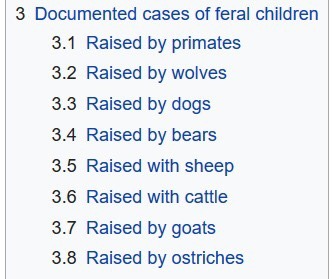
Roll 1d8 on this list during character creation do determine your characters backstory
118K notes
·
View notes
Text
DM when the players actually roll well and their plans succeed:

9K notes
·
View notes
Text
Friend: “How does D&D work?”
Me: “You need to buy a shitload of dice and then pretend like you know what you’re doing.”
40K notes
·
View notes
Text
I added in 3 new DM techniques that really worked tonight -
1) I responded to more things with a Matt Mercer “you can certainly try” response (I had a bad habit of not allowing them to try to do impossible things, and now I let them try and fail)
2) I said Matt Mercer’s “good to know” more often when they tell me they’re doing something (even if it won’t impact anything) so they feel acknowledged
3) If they hesitate too long after I ask “what do you do?” I go on to describe several things they could possibly do from their position, but also leave it open-ended
9K notes
·
View notes
Text
My players as soon as it’s their turn, as if they didn’t know it was coming up again:
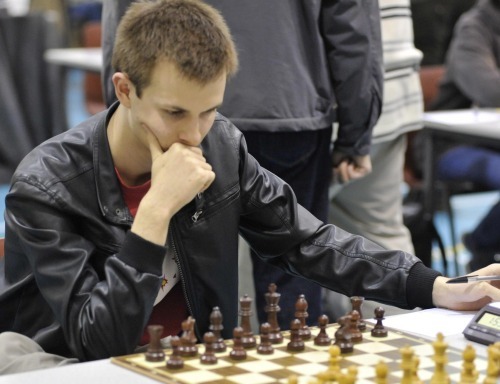
58K notes
·
View notes
Photo



I have had these items on my Note app for a very long time. Just taking advantage of my muse while I can. Enjoy!
3K notes
·
View notes
Text
WHO is going to have a subtextually homoerotic swordfight with me that stems from our major unresolved sexual tension
221K notes
·
View notes
Text
me holding a gun to a mushroom: tell me the name of god you fungal piece of shit
mushroom: can you feel your heart burning? can you feel the struggle within? the fear within me is beyond anything your soul can make. you cannot kill me in a way that matters
me cocking the gun, tears streaming down my face: I’M NOT FUCKING SCARED OF YOU
680K notes
·
View notes
Text
good: “may i have this dance?”
EXCELLENT: “may i have this dance?” *draws sword*
52K notes
·
View notes
Text
When you fail an important check and it’s both hilarious but you’re bout to be in serious trouble:

14K notes
·
View notes
Photo
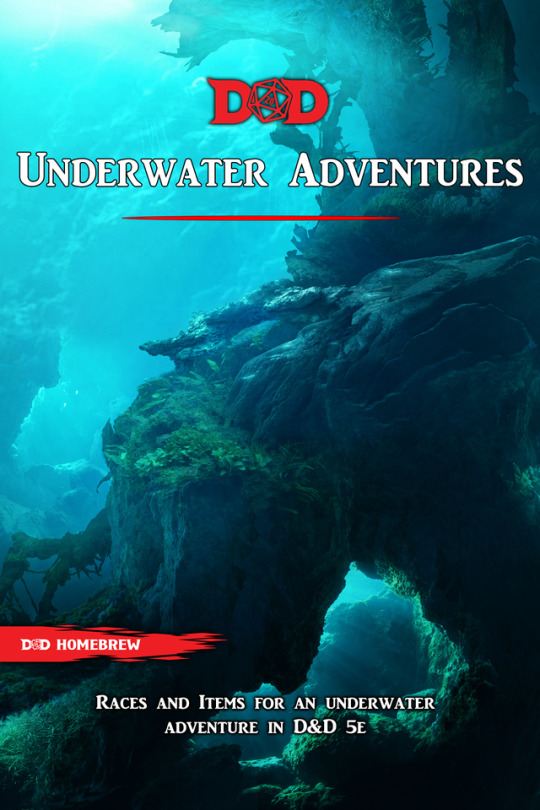
It’s been a lot of work, but the Underwater Adventure PDF is finished! It includes five races, some magic items, a couple additional rules and variants, and reworks of underwater animals! This PDF was made as a ‘Thank you!’ for supporting my project to bring D&D to local libraries.
Download it, or use it online through Dropbox
Reblogs are greatly appreciated!
7K notes
·
View notes
Text
Matt before Sam mentions setting off thunderwave inside the dragon:

Matt AFTER SAM MENTIONS SETTING OFF THUNDERWAVE INSIDE THE DRAGON:

8K notes
·
View notes
Text
i love how hobbits are canonically so good at hiding in plain sight that they’re basically cryptids to anyone in middle-earth outside of the shire and bree
88K notes
·
View notes
Text
crit role’s influence on dnd:
-all firbolgs are now cows
-bloodhunter class amongst other things
-dnd is top tier because we have jesus dming now i guess
-great cross fandom with TAZ
-“oh so the mcelroys really were just fucking doing whatever weren’t they”
-a follow up coming from taz: “wait what do you mean dnd has X”
-all dms living vicariously through the one and Only dnd group with consistent meeting times
-seriously can you imagine getting your party to show up on time every week and actually progress in the story
-something about guns? they made guns?
-dnd isn’t just for nerds anymore. now it’s for like, more flavors of nerds. nerds who used to think “i’m not really that nerdy, you know? i’m jock passing probably”- now have 30 sets of dice and the monster manual they carry around everywhere, thanks crit role
6K notes
·
View notes


